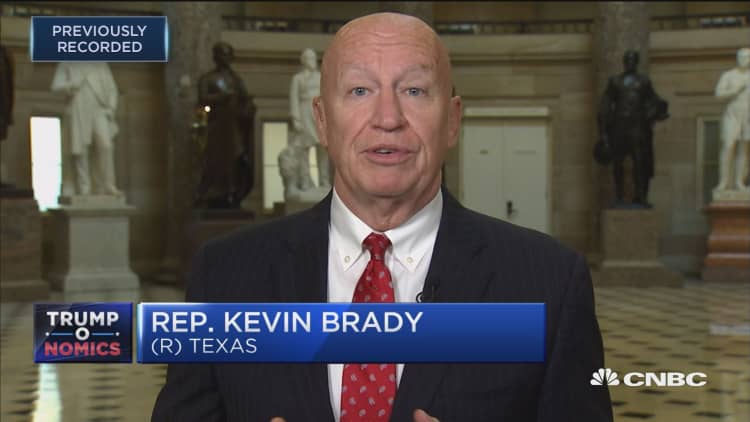
Economic growth generated by GOP tax cuts won't be enough by itself to wipe out the federal budget deficit, top House tax writer Rep. Kevin Brady said Monday on CNBC.
"We know tax reform done right can grow the economy in a big way. But that alone won't get us back to a balanced budget," said the Texas Republican, chairman of the House Ways and Means Committee. "You have to eliminate dozens, if not hundreds of provisions out of the code to lower those rates and move us back to a balanced budget."
"Growth alone, I acknowledge, won't get us back there," Brady admitted on "Squawk Box."
The Trump administration has suggested previously the proposed tax cuts will be paid for entirely through economic growth and the cuts would not increase the budget deficit. Critics counter by saying that Republicans can't count on the economic growth to pay for the tax cuts, and that the GOP package as designed would add to the deficit and put the federal budget further out of balance.
The House Ways and Means Committee is set to begin revising its tax reform plan on Monday to help ease some Republican lawmakers' concerns about the bill, which was unveiled last week. House Speaker Paul Ryan said Sunday that he expects the broad outlines of the bill to remain the same. Republicans are aiming to pass their tax legislation by Thanksgiving.
In the CNBC interview, Brady also said he's looking to effectively close a tax loophole used by hedge funds by increasing to two years "the holding period on carried interest." This would make the tax rule less profitable to exercise. The provision, being utilized in the short term by hedge funds, was designed to reward longer-term investments like real estate.


